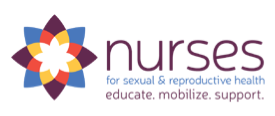In this webinar NSRH has partnered with Ibis Reproductive Health who will share their research findings on the effectiveness of misoprostol-only regimens, including the perspectives of patient experiences using miso-only. The webinar concludes with a discussion on what this could mean for access, nursing practice and further advocacy and research.
This webinar will breakdown the scope, benefits, and interdependence of telemedicine abortion, clinical abortion, and self-managed abortion, as well as discuss the nurses & APRN role.
This course is a webinar produced by If/When/How discussing the nurses role in mandatory reporting, focused on self-managed abortion.
Demographer Diana Greene Foster puts forward the results of The Turnaway Study, her landmark work following nearly 1,000 women through abortion or childbirth, presenting definitive data on the long-term physical, mental and economic impacts of the right to choose on pregnant people and their families.
This course introduces the public health model of care and the role of abortion access to promoting healthy communities.
This course provides an overview of the medical management of abortion and the role of nurses and APRNs in abortion care.
The Abortion Course: Quality Care and Public Health Implications was created to fill in the gaps left by the exclusion of abortion from mainstream curricula.
This course was created to train healthcare workers to perform basic pregnancy ultrasound. It includes videos and other educational materials designed to be used in a 2-week ultrasound course.
This introductory public health course provides accessible and foundational knowledge on the topic of abortion in the context of a changing reproductive health landscape.
Abortion care training materials from IPAs to meet the varied needs of health systems and the contexts in which they work.
NAF represents and supports abortion providers in delivering patient-centered, evidence-based care. Their resources include technical and administrative support, and medical education material.
SFPs Clinical Guidelines develops methodologically rigorous, evidence-based clinical guidance based on existing medical literature and best practice. These resources can be used by NPs, PAs and nursing managers to set-up best practices in abortion care.
The goal of this resource is to help clinicians expand access to abortion by independently expanding their abortion practice from 13.6 weeks through 17 weeks.
Tips on talking to a healthcare provider after a first trimester miscarriage or abortion.
Downloadable materials related to conducting first trimester abortion and complication simulation workshops from TEACH.
The APC Toolkit helps clinicians compile crucial evidence and documentation to support the integration of early abortion care as an essential part of women’s health care services.
This article which examines the experiences of patients using abortion pills at home.
The AP Toolkit is a professional guide for NPs, midwives, and PAs in the United States who are either currently providing or would like to offer abortion care. The Toolkit helps clinicians compile evidence to support the integration of early abortion care as an essential part of patients’ health care services.
The HWPP study in 2013 was a multi-year study that assessed the safety and efficacy of NPs, CNMs and PAs providing first trimester abortions. This study has been foundational in advancing APCs as abortion providers.
This algorithm from RHAP outlines counseling and treatment options when managing call for medication abortion patients.
This role-play script from RHAP can teach APCs and RNs the basic elements of medication abortion counseling.
Based on the latest scientific evidence, the new World Health Organization guidelines bring together over 50 recommendations spanning clinical practice, health service delivery, and legal and policy interventions to support quality abortion care.
This position statement from ACNM affirms CNMs as safe, effective abortion providers and advocatres for CNMs to be able to work to the full scope of their license.
